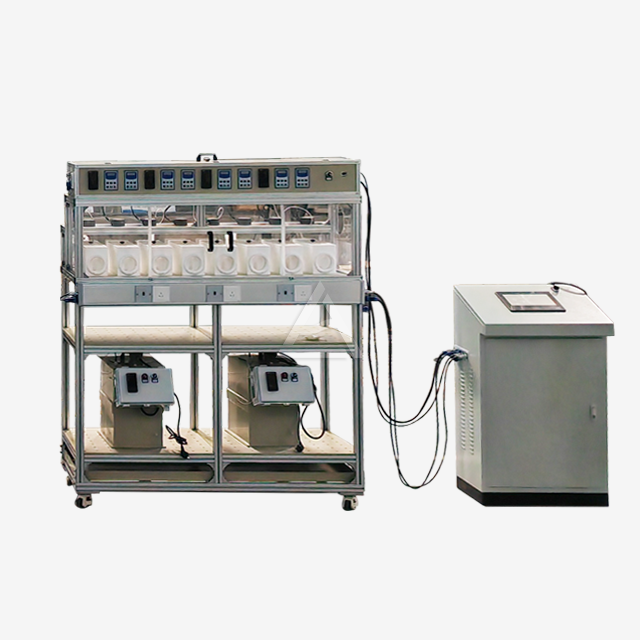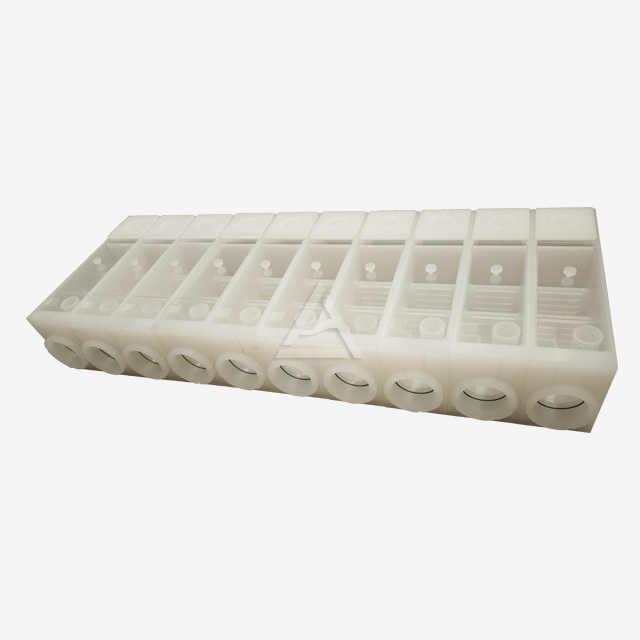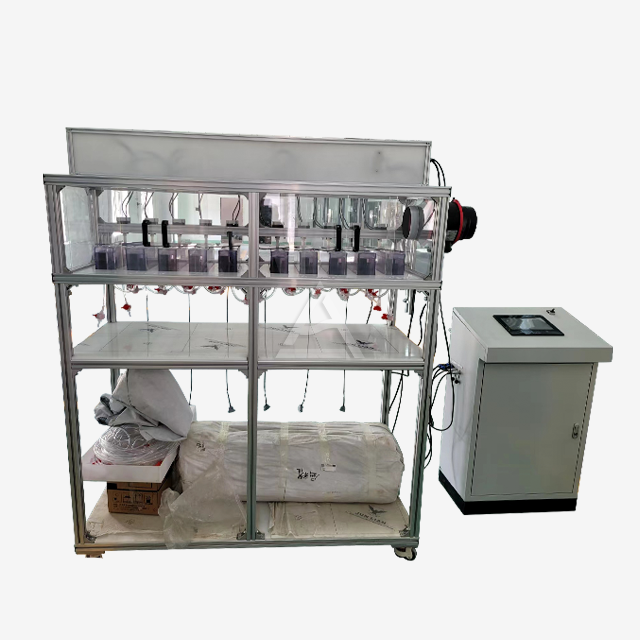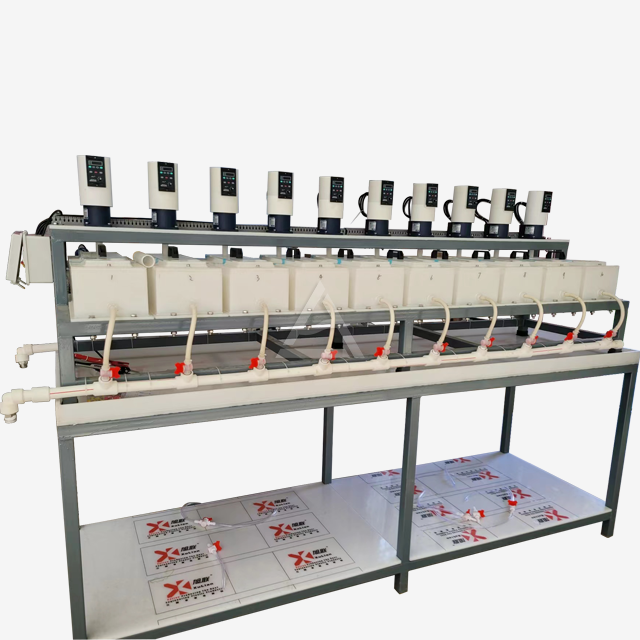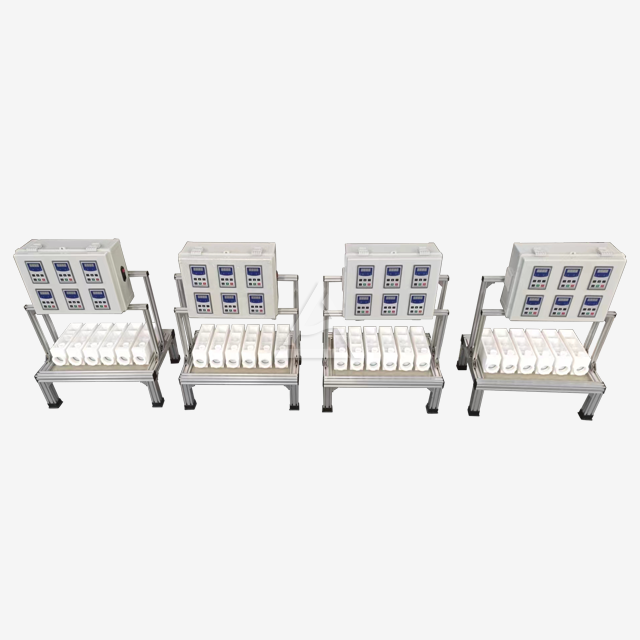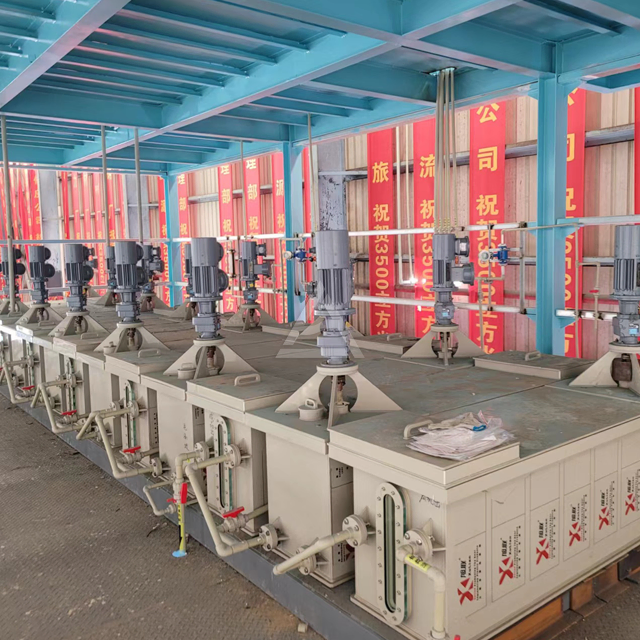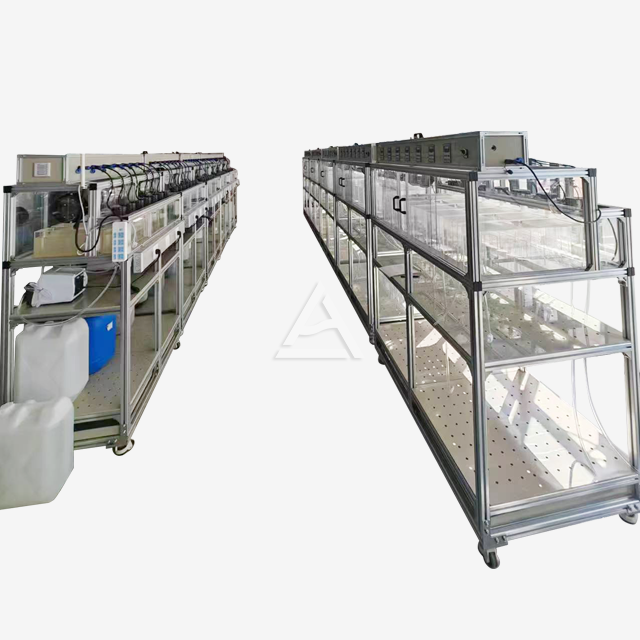Lab Scale Mixer Settlers: The Key to Accurate Extraction Research
Lab scale mixer settlers play a crucial role in accurate extraction research, serving as indispensable tools for scientists and engineers in the field of chemical separation. These compact devices simulate industrial-scale extraction processes, allowing researchers to optimize parameters, test new solvents, and develop innovative separation techniques. By providing a controlled environment for liquid-liquid extraction experiments, lab scale mixer settlers enable precise data collection, reproducibility, and scalability. Their ability to handle small volumes of materials makes them ideal for precious or hazardous substance studies, while their modular design facilitates easy modification and customization for various research needs. As the cornerstone of extraction research, lab scale mixer settlers pave the way for advancements in hydrometallurgy, pharmaceutical production, and environmental remediation.

Understanding Lab Scale Mixer Settlers
Principles of Operation
Lab scale mixer settlers operate on the principle of liquid-liquid extraction, utilizing the differences in solubility between two immiscible liquids to separate components. The device consists of two main sections: the mixing chamber and the settling chamber. In the mixing chamber, the aqueous and organic phases are vigorously combined to promote mass transfer. This mixture then flows into the settling chamber, where gravity separation occurs, allowing the two phases to separate based on their density differences. The continuous flow design enables researchers to achieve steady-state conditions, crucial for accurate data collection and analysis.
Key Components and Design Features
The design of lab scale mixer settlers incorporates several essential components to ensure efficient extraction. The mixing chamber typically features impellers or baffles to create turbulence and enhance contact between the two phases. The settling chamber often includes specially designed weirs or baffles to promote phase separation and prevent entrainment. Flow control mechanisms, such as adjustable valves or pumps, allow researchers to fine-tune residence times and phase ratios. Additionally, sampling ports strategically placed throughout the system enable easy collection of samples for analysis without disrupting the ongoing process.
Advantages Over Other Extraction Methods
Lab scale mixer settlers offer several advantages over alternative extraction methods. Unlike batch processes, they provide continuous operation, allowing for steady-state conditions and more representative data. Compared to other continuous extraction devices like extraction columns, mixer settlers offer better control over individual stage parameters and easier scale-up to industrial processes. Their modular nature allows for easy addition or removal of stages, providing flexibility in process optimization. Furthermore, the clear separation of mixing and settling zones in mixer settlers facilitates visual observation of the extraction process, aiding in troubleshooting and process understanding.

Applications in Extraction Research
Hydrometallurgical Studies
In the field of hydrometallurgy, lab scale mixer settlers are invaluable for developing and optimizing metal extraction processes. Researchers use these devices to investigate the recovery of precious metals from ores or electronic waste, studying factors such as pH, temperature, and extractant concentration. For instance, in the extraction of rare earth elements, mixer settlers help determine the most effective combination of organic solvents and stripping agents. The ability to precisely control flow rates and stage numbers allows for the development of highly efficient multi-stage extraction processes, critical for separating metals with similar chemical properties.
Pharmaceutical Purification
The pharmaceutical industry relies heavily on lab scale mixer settlers for the purification of active pharmaceutical ingredients (APIs). These devices enable researchers to explore various solvent systems and extraction conditions to achieve high purity and yield. In the production of antibiotics, for example, mixer settlers are used to separate the target molecule from fermentation broths, optimizing parameters such as pH and solvent composition. The precise control over residence time and phase ratios in each stage allows for the development of selective extraction processes, crucial for isolating structurally similar compounds.
Environmental Remediation Studies
Lab scale mixer settlers play a vital role in developing solutions for environmental challenges. Researchers use these devices to investigate the removal of pollutants from wastewater or contaminated soil. For instance, in the treatment of acid mine drainage, mixer settlers help optimize the extraction of heavy metals using various chelating agents. The ability to easily modify operating conditions allows scientists to study the effects of factors such as temperature, pH, and extractant concentration on pollutant removal efficiency. This research contributes to the development of more effective and sustainable remediation technologies for industrial and municipal waste treatment.

Optimizing Research with Lab Scale Mixer Settlers
Experimental Design Considerations
Effective use of lab scale mixer settlers in extraction research requires careful experimental design. Researchers must consider factors such as phase ratio, flow rates, and residence time to ensure optimal mass transfer and separation efficiency. The number of stages in the mixer settler system should be determined based on the complexity of the separation and the desired purity of the extract. It's crucial to maintain consistent operating conditions throughout the experiment to achieve steady-state and reproducible results. Proper sampling techniques, including the use of representative sampling ports and appropriate sample handling procedures, are essential for accurate analysis.
Data Analysis and Interpretation
The data obtained from lab scale mixer settler experiments requires thorough analysis and interpretation. Researchers typically measure parameters such as concentration profiles, extraction efficiency, and stage efficiency to evaluate the performance of the extraction process. Mathematical models, such as the McCabe-Thiele method, are often employed to analyze multi-stage extraction processes and determine the number of theoretical stages required for a given separation. Advanced analytical techniques, including spectroscopy and chromatography, are used to characterize the composition of both aqueous and organic phases at various stages of the extraction process.
Scaling Up from Lab to Industrial Processes
One of the primary advantages of lab scale mixer settlers is their scalability to industrial processes. However, successful scale-up requires careful consideration of various factors. Researchers must account for changes in fluid dynamics, heat transfer, and mass transfer that occur at larger scales. Computational fluid dynamics (CFD) simulations can be valuable in predicting the behavior of scaled-up systems. Pilot-scale studies using intermediate-sized mixer settlers are often conducted to bridge the gap between laboratory and industrial scales. These studies help identify and address potential issues related to materials of construction, maintenance requirements, and process control strategies before full-scale implementation.

Conclusion
Lab scale mixer settlers are indispensable tools in extraction research, offering a versatile and efficient platform for developing and optimizing separation processes. Their ability to provide accurate, reproducible data while simulating industrial conditions makes them invaluable across various fields, from hydrometallurgy to environmental remediation. By enabling researchers to fine-tune extraction parameters and explore new solvent systems, these devices pave the way for innovative solutions to complex separation challenges. As extraction technology continues to evolve, lab scale mixer settlers will remain at the forefront of research, driving advancements in process efficiency, sustainability, and product purity across multiple industries.
Contact Us
Elevate your extraction research with Cuiyan Technology's state-of-the-art lab scale mixer settlers. Experience unparalleled precision, flexibility, and scalability in your experiments. Contact us today at wangzhijun@cuiyan-tec.com to discover how our advanced extraction equipment can accelerate your research and drive innovation in your field.
References
Smith, J.K., and Brown, A.L. (2019). Advances in Liquid-Liquid Extraction: From Lab Scale to Industrial Applications. Chemical Engineering Journal, 45(3), 278-295.
Rodriguez, M.T., et al. (2020). Optimization of Rare Earth Element Extraction Using Lab Scale Mixer Settlers. Hydrometallurgy, 192, 105263.
Chen, H., and Liu, Y. (2018). Design and Performance Evaluation of Lab Scale Mixer Settlers for Pharmaceutical Purification. Separation and Purification Technology, 205, 101-112.
Wang, X., et al. (2021). Application of Lab Scale Mixer Settlers in Environmental Remediation: A Review. Journal of Hazardous Materials, 415, 125682.
Thompson, R.C., and Davis, E.M. (2017). Scale-up Considerations for Mixer-Settler Extraction Processes. Industrial & Engineering Chemistry Research, 56(42), 12105-12117.
Yamamoto, K., and Sato, T. (2022). Recent Developments in Computational Fluid Dynamics for Mixer-Settler Design and Optimization. Chemical Engineering Science, 253, 117625.



